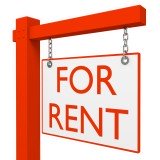7 Major Mistakes Made by Bad Landlords
Bad landlords who land themselves in hot soup are often not crooks. Most of the time, they are just regular rental property owners who have made some nasty mistakes. Find out what are the most common and fatal landlord mistakes.
1. Discriminating Your Tenant Applicants by Accident
While everyone wants the best tenant for their rental property, you can't discriminate anyone based on their age, sex, race, disability or family status.
While it's well within your rights to reject having seven people living in your 2 bedroom apartment (due to overcrowding), you are not allowed to decline someone just because he or she has kids (due to worries that her kids will trash up your place) - Click here to learn what are your rights when it comes to choosing tenants.
When interviewing tenants, exercise caution and avoid asking questions that contain any trace of discrimination. We suggest that you write down and review your interview questions beforehand.
The last thing you want is an offended tenant taking matters to your local fair housing authorities. If you get ever blacklisted as a bad landlord by the housing authorities or tenant sites, it's going to negatively the number of potential tenants for your property.
2. Failing to Screen and Choose Your Tenants Properly
Most experienced landlords agree that choosing the right tenant will eliminate 80% of your future problems. Studies has shown that on the average, 3 out of 10 tenants are bad ones so knowing how to weed them out is crucial.
However, most bad landlords do not know or simply cannot be bothered to screen their tenants properly. Asking your potential tenants the right questions, learning how to read their body language and making sense of their application forms are all important skills of effective tenant screening.
For more advice on choosing the perfect tenant, Click here for our tenant screening guide.
3. Not Keeping the Promises You Made to Tenants
The promises that you make to tenants are legally binding. Even if it's just something that you said and is not included in the written lease agreement, your tenants may still be able to hold you responsible.
When rejecting someone as your tenant, avoid lies such as claiming that you have already found a new tenant. Instead politely let them know that you wish to interview more people before making your choice. Some people have been wrongfully accused of being bad landlords or even sued for discrimination when they were just trying to tell a white lie.
If you reject an applicant because of his tenant credit report, then you need to give him an adverse action notice as well
Be extra careful when making promises during the signing of your rental agreement. If your promise is the reason why your tenants agreed to the lease, then they can break the rental agreement later if you do not keep your word.
For example, if you promised tenants a new water heater in a week and you did not install it on time, they can simply move out of your property and refuse to pay you rent.
4. Not Maintaining Your Property in Habitable Condition
While noone expects your rental property to glitter like a royal palace, the condition of your property still has meet your area's housing safety and health standards.
If you are facing repair problems, Click here to learn how to carry out rental property maintenance and keep it in good shape.
Any property damage that is not due your tenant's neglect or abuse... and affects its habitable condition has to be fixed by the landlord.
Once the tenant has informed you of the damage, you will usually have 7 to 14 days for repairs. If it is an emergency situation such as a total electrical failure, then you will have to fix the problem within 24 to 48 hours.
After this time limit, your tenants can choose to end their rental agreement with your and make a complaint to the local housing authorities. Make your repairs on time to avoid being blacklisted as bad landlords.
NEXT: 3 More Common Mistakes Made by Bad Landlords



